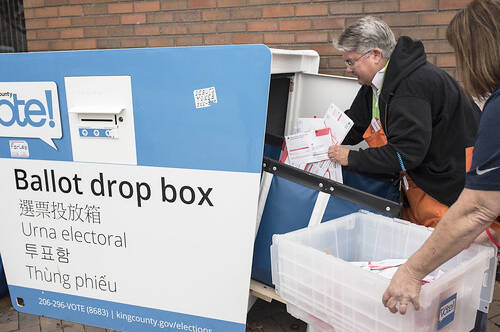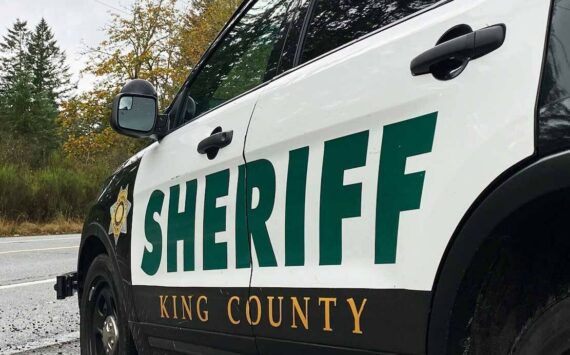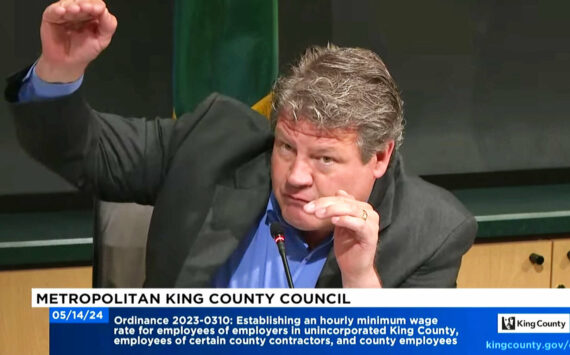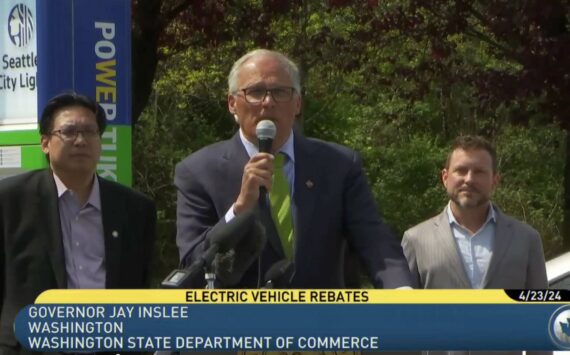On Jan. 8, Washington Secretary of State Steve Hobbs sent official notification to the Legislature that six initiatives have been granted provisional certification to appear on the ballot.
The initiatives address issues such as parental rights for education, tax collection, vehicle pursuits by police and carbon tax credits.
The six initiatives are:
• Initiative to the Legislature no. 2081 concerning parental rights relating to their children’s public school education. This initiative, if passed, would codify parental rights in public education including but not limited to the rights of parents to “examine the textbooks, curriculum, and supplemental material used in their child’s classroom,” “To receive prior notification when medical services are being offered to their child, except where emergency medical treatment is required,” and to “receive assurance their child’s public school will not discriminate against their child based upon the sincerely held religious beliefs.”
The initiative would also codify parents’ rights to “receive written notice and the option to opt their child out of any surveys, assignments, questionnaires, role-playing activities, recordings of their child, or other student engagements” that include questions about a student’s sexual experiences or attractions, family beliefs, morality, religion, or political affiliations among other topics.
• Initiative to the Legislature no. 2109 concerning taxes: If passed, this initiative would repeal the capital gains tax, an excise tax imposed on the sale or exchange of certain long-term capital assets by individuals who have annual capital gains of over $250,000.
• Initiative to the Legislature no. 2111 concerning taxes: This would prohibit the state, counties, cities, and other local jurisdictions from imposing or collecting income taxes, defined as having the same meaning as “gross income” in the Internal Revenue Code.
• Initiative to the Legislature no. 2113 concerning vehicular pursuits by police officers: This initiative, if passed, would change the language of the state’s recently passed police vehicle pursuit to only require a “reasonable suspicion” that a person has violated the law before engaging in a vehicle pursuit. This would make the police vehicle pursuit standards to be on-par with what they were before the pandemic.
• Initiative to the Legislature no. 2117 concerning carbon tax credit trading: If passed, this would prohibit all state agencies, counties, and cities from implementing any type of carbon tax credit trading, also known as “cap and trade.”
• Initiative to the Legislature no. 2124 concerning state long-term care insurance, if passed would “amend state law establishing a state long term care insurance program to provide that employees and self-employed people must elect to keep coverage under RCW 50B.04, allow employees to opt-out of coverage under RCW 50B.04 at any time, and repeal a current law governing exemptions for employees who had purchased long term care insurance before November 1, 2021.”
According to the Secretary of State’s Office, the signatures on the initiatives are still being verified by the Office of the Secretary of State Elections Division team, which uses a state-mandated process of examining a 3% random sample of submitted signatures.
The statistics will be published on a dedicated page of the Office of the Secretary of State website.
State law requires the Secretary of State to notify the Legislature at the opening of its session of any proposed initiatives to the Legislature, and to provide follow-up notification as soon as signature verification is complete.
“Many significant state laws have been adopted due to the initiative process since Washington became one of the first states to enact it in 1912,” Hobbs said in a written statement. “My office’s responsibility is to ensure it runs fairly, efficiently, and smoothly.”
If sufficient signatures are verified, the Legislature may approve an initiative or send it to voters. If an initiative is rejected by the Legislature, or the Legislature takes no action by the end of the Legislative session on March 7, the Secretary of State will certify the initiative for the next general election.
The Legislature may also pass an alternative proposal to accompany an initiative on the ballot.








